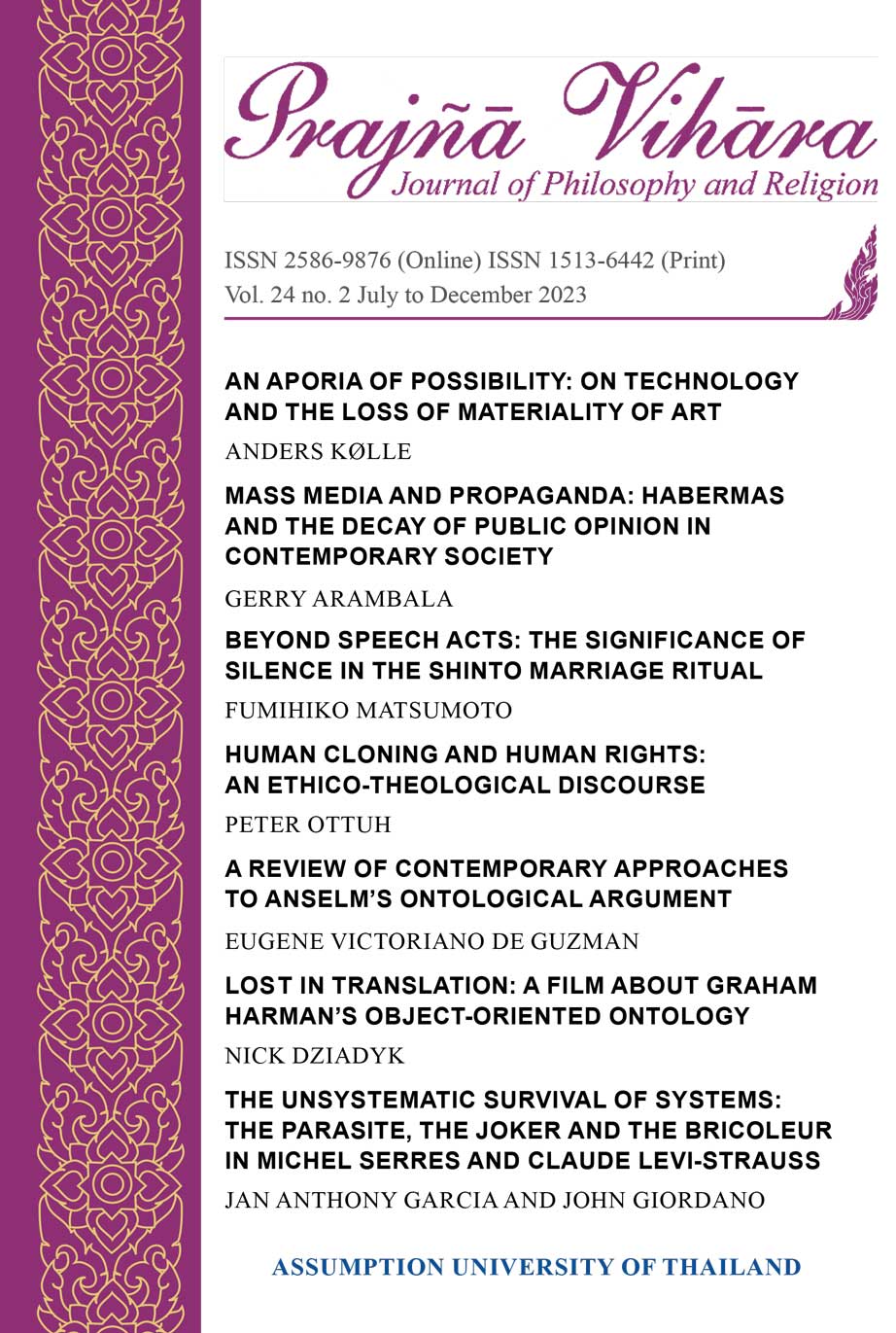THE UNSYSTEMATIC SURVIVAL OF SYSTEMS: THE PARASITE, THE JOKER AND THE BRICOLEUR IN MICHEL SERRES AND CLAUDE LEVI-STRAUSS
Keywords:
Michel Serres; Claude Levi-Strauss; parasitism; bricolage; systems theory; the jokerAbstract
With our increasing reliance on systems from information theory to economics, it is important to understand how systems are constructed, how they break down and how they preserve themselves. The philosopher Michel Serres in his work The Parasite showed how systems can never preserve their order in a pure manner; they always involve noise and lost signals. He explores this by employing the idea of parasitism from biology. But the problem remains of how systems maintain themselves in the face of parasitism. This paper will explore the concept of bricolage conceived by structural anthropologist Claude Levi-Strauss in his seminal work The Savage Mind. This concept can be found within a single ambiguous quotation by Serres in The Parasite, but remains undeveloped. This article will therefore develop these connections between bricolage and parasitism, and show how bricolage is important to the adaptation of any system to change.
References
Brown, Steven D. "Michel Serres: Science, Translation and the Logic of the Parasite." Theory, Culture & Society 19 no. 3 (2002): 1-27
Hagemeijer, Rouven Ernst. The Unmasking of the Other. Erasmus Universiteit
Rotterdam, Netherlands. 2005.
Levi-Strauss, Claude. The Savage Mind. Letchworth, Hertfordshire: The Garden City PressLimited, 1962.
Serres, Michel. Hermes: Literature, Science, Philosophy. trans. by Josue V. Harari and
David F. Bell. Baltimore: The John Hopkins University Press, 1983.
Serres, Michel. The Parasite. Baltimore and London: The Johns Hopkins University Press, 1982.
Downloads
Published
Issue
Section
License
Consent to Publish and Transfer of Copyright
By publishing in Prajñā Vihāra, the author agrees to transfer and assign to Assumption University of Thailand as the Publisher of the Journal, the copyright to the Article in any form, including any and all rights, interests and claims related to it.
The author does retain the following rights:
- The right to make further copies of the published article for their use in classroom teaching.
- The right to reuse all or part of the published article in a compilation of his or her own works or in textbooks of which they are the author or coauthor.
- The right to make copies of the published article for internal distribution within their academic institution.
- All proprietary rights other than copyright, such as patent rights.
- The Article is his or her original work, and has not been published previously and is not under consideration for publication elsewhere.
- It does not contain any matter that is obscene, libelous, or contrary to law.
- They have obtained the necessary license or written authority and paid any and all related fees for the use and reproduction of text, tables, illustrations and other copyrighted work from the owners of the intellectual property rights, and can furnish the Publisher copies of the license/written authority and proof of payment of related fees upon the signing of this Agreement.
- They have the consent of the Co-Authors of the article upon the signing of this Agreement.
- In the event that they intend to republish, reprint or translate all or part of the Article in other publications, they will secure the prior written permission from the journal Editor.
Prajñā Vihāra adopts the Creative Commons Attribution (CC BY-NC-ND) license


